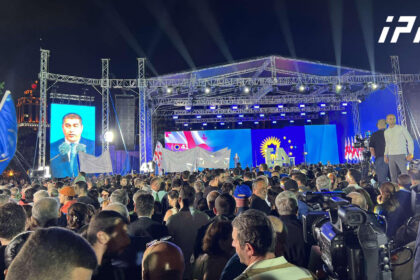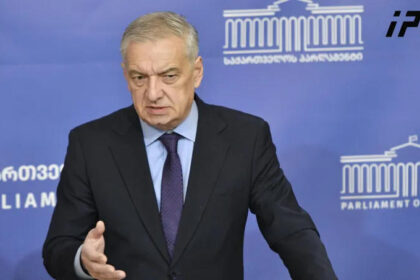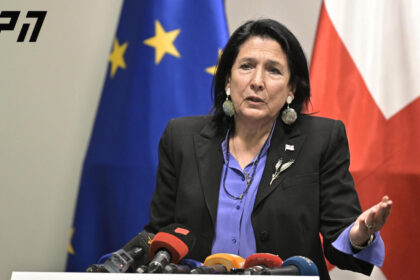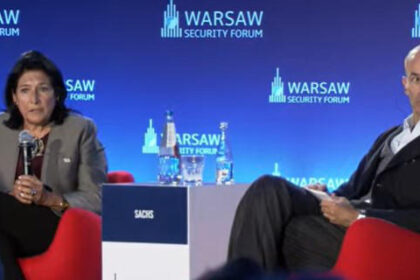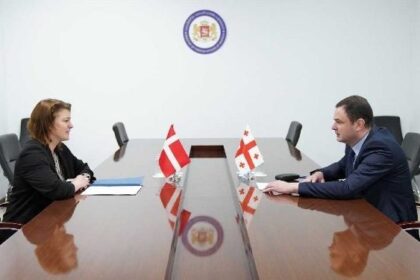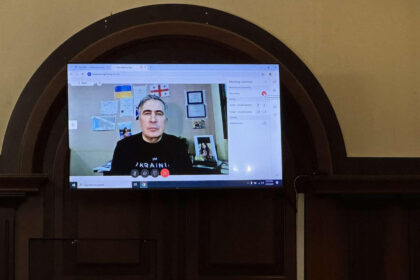The Council of Europe Commissioner for Human Rights has submitted third-party written observations to the European Court of Human Rights (ECHR) regarding the case of Georgia’s “Foreign Influence” law, according to a statement from the press service of the Council of Europe Commissioner for Human Rights.
The Commissioner, Michael O’Flaherty, published his written observations concerning the ongoing case at the ECHR, “Georgian Young Lawyers’ Association and Others v. Georgia.”
“On July 4, 2025, the Council of Europe Commissioner for Human Rights (hereinafter the Commissioner) informed the European Court of Human Rights (hereinafter the Court) of his intention to intervene as a third party, pursuant to Article 36(3) of the European Convention on Human Rights (hereinafter the Convention), and to submit written observations in the case of ‘Georgian Young Lawyers’ Association and Others v. Georgia,'” stated Michael O’Flaherty in his observations.
The Commissioner asserts that “the adoption of the law in Georgia forms part of a broader set of restrictions on the freedom of expression and assembly of civil society.”
“The Commissioner notes that imposing restrictions on civil society organizations, including the obligation to register as ‘organizations pursuing the interests of a foreign power’ and/or ‘foreign agents,’ limits the ability of human rights defenders to exercise their rights to freedom of expression and freedom of assembly,” the observations state.
According to Michael O’Flaherty, “the provisions of the ‘Law on Transparency of Foreign Influence’ may not meet the criteria of legality, legitimacy, and proportionality as outlined in Articles 10(2) and 11(2) of the European Convention on Human Rights. Additionally, several aspects of the law undermine its stated purpose, which is to ensure transparency of foreign influence on civil society organizations’ funding.”
“The formulation of certain provisions of the ‘Law on Transparency of Foreign Influence’ is vague, and state authorities, particularly the Ministry of Justice, have been granted broad powers to enforce the law. According to the Venice Commission’s conclusion, the category of ‘organizations pursuing the interests of a foreign power’ is potentially very broad and undefined due to vague and broad terms, making it difficult for civil society organizations to understand whether the law applies to them,” the Commissioner writes.
“Regarding the necessity of the ‘Law on Transparency of Foreign Influence’ in a democratic society, the Commissioner notes that the use of the label ‘organizations pursuing the interests of a foreign power’ is misleading and similar to the ‘foreign agent’ label used in Russia, which the Court found to violate the Convention. The Commissioner believes that assigning a negative label through the ‘Law on Transparency of Foreign Influence’ is further exacerbated by authorities referring to civil society organizations and human rights defenders as ‘enemies of the state,’ ‘members of the global war party,’ or ‘deep state,'” the observations state.
The Commissioner identifies three aspects related to the stated objectives of the “Law on Transparency of Foreign Influence” that raise concerns:
1. “Additional laws aimed at restricting freedom of expression and assembly. Following large-scale protests against the government in November and December 2024, several laws were adopted that severely restrict human rights, particularly the right to freedom of assembly.”
2. “The Commissioner notes the use of intimidation against civil society organizations and human rights defenders through attacks and smear campaigns by the Georgian authorities. The Commissioner expresses concern about the rhetoric used by senior officials of the ruling party, including the Prime Minister, who repeatedly stated that non-transparent NGOs were attempting to organize a revolution in Georgia. Additionally, the Commissioner notes statements by members of the ruling party about banning or dissolving civil society organizations.”
3. “The Commissioner notes that the narrowing of space for civil society organizations continues.”
Michael O’Flaherty: The ‘Foreign Influence’ law in Georgia is part of a broader set of restrictions on freedom of expression – the narrowing of space for civil society organizations continues





